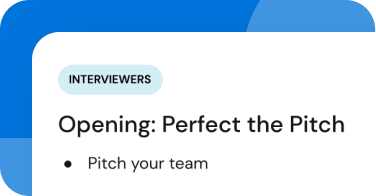Great sales managers are at the heart of your success as a business. To hire great sales managers, you need to ask the right questions during the interview process—ones that will screen for industry experience, strong hiring capabilities, and good leadership and communication skills.
Download our new 2022 State of Sales Hiring Report for benchmarks on AE hiring and interview tips
These sales manager interview questions will help you identify prospects who bring industry knowledge into a role, can sustainably hire and train additional sales reps, and communicate and lead effectively.
Screen for Sales Industry Knowledge
What is sales’ relationship to marketing, and how have you previously worked with marketing teams?
What this measures:
A sales manager candidate should have a solid understanding of the sales-marketing relationship. This question not only tests their understanding of that relationship but asks the candidate to explain the extent of their own relationship with marketing in prior roles.
What to listen for:
An experienced candidate will have a few examples to draw from in their response, which should demonstrate their understanding of sales-marketing alignment, as well as the extent of their work with marketing departments to better serve customers.
When is a long sales cycle appropriate? When is a short sales cycle appropriate?
What this measures:
This question asks the candidate to demonstrate their understanding of the sales cycle. It also helps give interviewers a better picture of the candidate’s understanding of when long or short sales cycles are appropriate.
What to listen for:
Examine the candidate’s way of thinking—listen for how they approach each sales cycle, long or short, from a high level, and decide whether or not it applies to your industry. Long sales cycles generally apply to long-term, expensive purchases for a business. Lots of planning is involved. Short sales cycles generally require less in-depth information on the part of the purchaser.
How do you decide which technology to purchase and what’s your essential toolkit?
What this measures:
This question measures tool competency and prior industry knowledge. Part of a sales manager’s job is selecting digital tools for their team, and their selection here will help inform interviewers on how current the candidate is with the sales technology landscape.
What to listen for:
Listen for mentions of major CRMs and sales tools, such as Salesforce and HubSpot. Interviewers should pay special attention to the candidate’s reasoning when explaining their technology choices and check to ensure they’re able to convey their selection’s values and benefits over features.
Assess Hiring and Training Abilities
Can you describe a successful hire you’ve had in the past? What about an unsuccessful hire? What did you learn from each?
What this measures:
This question measures the candidate’s ability to identify and hire talent and also gives interviewers a window into what the candidate values in their hiring process. The other half of this question gives them a chance to be honest about their failures and to demonstrate they’re capable of learning from mistakes (or wins) in productive ways.
What to listen for:
Answers here should highlight ways the candidate has evaluated the skills of new hires during their own interview and onboarding process. Listen for mention of the metrics and goals they used to assess a new rep’s abilities.
What are your training practices for new sales reps?
What this measures:
This should give interviewers a good feel for the candidate’s preferred training strategies and techniques, as well as highlight any similarities (or differences) between their methods and your own. It also measures how quickly a sales manager candidate expects new hires to ramp up, which typically takes about six to nine months.
What to listen for:
The candidate will ideally mention some best practice techniques for training new sales professionals. The candidate should offer to set up time-specific and concrete goals for new reps. They’ll also mention providing resources such as training, product demos, and meetings with sales. Feedback for the new rep should be provided on a regular cadence and documented in all cases.
How would you monitor the sales performance of your new hire?
What this measures:
This question measures the candidate’s approach to KPIs as they relate to new hires and sales ramp. It asks what metrics they’ve used in the past to measure sales performance and how much experience they have with sales ramp up and onboarding.
What to listen for:
Listen for the candidate to make mention of several standard sales KPIs such as monthly sales growth, average profit margins, and average conversion time. Also, pay close attention to how the candidate sets up new hires for success.
Look for Strong Communication and Management Styles
What would you do if one of your sales reps has failed to hit their sales goals for a few months?
What this measures:
This question tests for proactive or reactive management styles. A proactive management style places importance on strategy and planning for risk. Reactive management is the opposite: it waits for risk to arise and then reacts to the problem. Generally, a proactive management style is considered the better approach toward people management.
What to listen for:
Listen for the hallmarks of a proactive management style in the candidate’s answer. An ideal candidate will mention things like:
- Proactive risk management
- Employee development through training and networking opportunities so they stay current in their skills
- Weekly or monthly check-ins with employees
- Documenting all discussions with employees
A reactive management style might immediately reach for an employee performance improvement plan, sometimes known as a PIP, which isn’t always the best solution for improving employee performance. It’s often seen by employees as a formality before being dismissed from a job.
How do you adapt your management style to different employees?
What this measures:
Good sales managers understand each rep is motivated by different things and is motivated in different ways. This question will help interviewers understand, at a high level, how the candidate is able to adapt their management style to different employees.
What to listen for:
Candidates who try to force their own methods on direct reports are a no-go. A good answer will make mention of the fact that every sales rep is motivated by different things and in different ways. Look for a candidate who wants to develop each rep in their own way, emphasizing the rep’s strengths and supporting their weaknesses with additional training and resources.
Talk about a time you had to share sales results with executives. What were the results, and what was your communication strategy going into the discussion?
What this measures:
Interviewers absolutely need to have a stronger understanding of how a candidate communicates to those they’re responsible to and what strategies the candidate uses to communicate positive or negative news.
What to listen for:
Listen for the use of best-practice communication strategies and techniques for sharing sales results. Good or bad news, the candidate should be able to communicate in their strategy a few important features of delivering sales results:
- Honesty, but not blunt honesty
- Active listening for feedback
- Empathy for the stakeholders
- Admitting fault, or highlighting success
- Outlining what the data says about future projections
- Actionable next steps for moving forward, good or bad
Conclusion: The Right Way to Hire and Onboard Sales People
Good sales managers do more than just excel in selling; they’re knowledgeable about the industry, have experience hiring reps, and communicate like one would expect a sales manager to communicate—with expertise, empathy, and enthusiasm. After you have the right sales manager interview questions ready, start implementing best-practice hiring techniques to ensure you’re not overlooking great candidates during the interview and damaging your hiring reputation in the process. Hiring and onboarding is a lengthy, costly procedure. Implementing a fair and equitable hiring process that eliminates bias is just one of the ways you can start hiring better, sales manager or otherwise.














